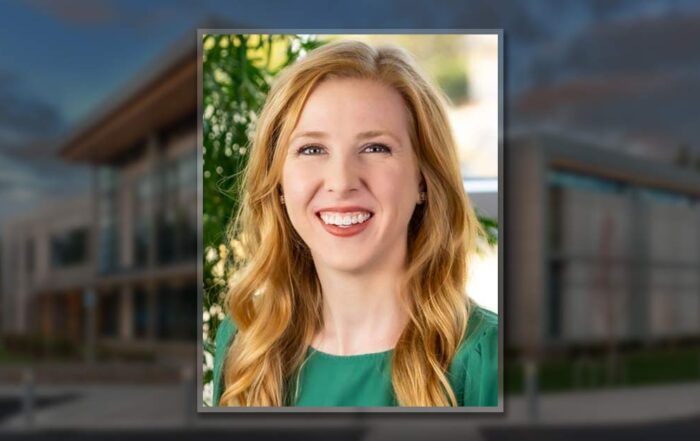
When you feel that something is off about your body or health, it’s easy to make the decision to get checked out by a healthcare professional. But, if you only see your doctor when you notice a change in your body, you could be missing important clues to your health that your doctor might discover in a preventive care checkup.
There are many things that can get in the way of making those regular, preventive appointments – scheduling conflicts, transportation issues, or just a busy life. Or in many cases, people believe doctors are only for the sick or injured, not realizing it’s possible to be sick without knowing it.
True, access to healthcare when sick or injured is critical, but preventive healthcare is just as necessary. Maybe more, as preventive care aims to prevent illness and negative outcomes.
Those Small Signs and Symptoms Mean You’re Already Sick
Symptoms that seem small, like an itchy mole, pain, or feeling tired all the time may seem like little annoyances or may not feel disruptive enough to see a doctor. Many people decide that those annoyances can wait until they have other reasons to seek care.
Sometimes those little annoyances are warning signs that something unusual is happening. By the time you have noticeable symptoms, you may already have an advanced condition. Waiting for a more serious problem to call the doctor just gives the small problem more time to become a big problem.
Preventive visits are meant to catch those problems before they have time to develop.
Preventive Visits Can Stop Illness Before It Begins
Regular visits for preventive care can identify problems before they start. Catching signs of developing a disease or identifying health conditions in early stages leads to more effective treatment
High blood pressure, for example, can have serious health consequences, like stroke or kidney problems. But you may not have noticeable symptoms of high blood pressure. Sometimes, only a healthcare professional can find the clues.
At your regular preventive visits, you may not realize your doctor is looking for clues. Questions about incontinence, birth control, or bathroom habits can feel embarrassing or intrusive, but your answers can give your doctor important information about your health.
COVID-19 Changed the Course of Preventive Health
Did you miss preventive screenings or regular appointments because of COVID restrictions? You’re not alone. Covid had a significant impact on preventive healthcare. Over 9 million screenings that would have been given in 2020, weren’t.
According to an American Cancer Society (ACS) study, millions of people skipped recommended screening for breast, cervical, and colorectal cancer – illnesses that can have life-changing consequences.
Were you one of them? While there were legitimate reasons for putting some care on hold temporarily, it’s important to get back on track now that it’s safe to do so.
Cervical, breast, and colorectal cancer are three of the most common cancers in women, and all three have preventive screening recommendations. If you missed regular screening due to Covid, here’s why you should make an appointment today to get caught up:
Cervical cancer – almost 4.5 million women skipped screening in 2020
Preventive screening (Pap tests) can detect cervical cancer in pre-cancerous and early stages, making it easier and more successful to treat. In the past 30 years, Pap tests have decreased the rates of cervical cancer and mortality by over 40%.
Early detection, accurate evaluation, timely follow-up, and treatment make the survival rate with pre-cancerous lesions nearly 100%.
Your OB/GYN will perform Pap tests regularly based on your personal history and current recommendations, which is every 3 years for most women.
Breast cancer – over 2 million women skipped screening in 2020
In America, breast cancer is the most common cancer in women and the second deadliest. Most breast cancer patients are women with no family history of it – they had no suspicion they might be likely to get diagnosed.
The CDC estimates that screening could reduce the mortality rate of breast cancer by over 40%. Breast cancer screening starts with your OB/GYN, as well as following recommendations for regular mammograms.
Colorectal cancer – 16 % of women and men missed recommended screening in 2020
About 1 in 23 women will be diagnosed with colon cancer. It’s the third most deadly cancer in women. When screening colonoscopies find pre-cancerous polyps, they can be removed, stopping cancer from forming. A study in JAMA Oncology found that colorectal screening with colonoscopy or sigmoidoscopy starting at age 45 significantly decreased colorectal cancer.
Colonoscopies are performed by gastroenterologists, but your OB/GYN may be able to offer you recommendations for trusted providers.
Preventive Care Saves Lives
Cervical, breast, and colorectal screening aren’t the only important health screenings at your preventive visits. To improve women’s health throughout their lifespan, the Health Resources & Services Administration (HRSA) recommends preventive screenings based on scientific research. Some recommendations are met through medical tests; others are met through conversations you have with your doctor:
- Well-Woman Preventive Visits
- Contraception
- Counseling for Sexually Transmitted Infections
- Screening for Human Immunodeficiency Virus Infection
- Screening and counseling for Interpersonal and Domestic Violence
- Screening for anxiety
- Screening for Urinary Incontinence
- Obesity screening in midlife
And for pregnant women:
- Breastfeeding services and supplies
- Screening for Gestational Diabetes Mellitus
- Screening for Diabetes Mellitus after Pregnancy
You can learn more about these screenings, and the recommended schedule, on the HRSA Women’s Preventive Services Guidelines page, or by talking with your doctor.
As you can see from the list, all of these preventive screenings can be performed by your OB/GYN. Developing a great relationship with your provider will help you live a long, healthy life from the time you are a teenager, through menopause, and beyond.
Don’t delay preventive care any longer – schedule an appointment today!
Find Your Care
Our team of OB/GYN specialists is ready to assist you. To schedule an appointment, please call us at 541-479-8363.



